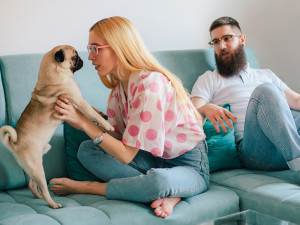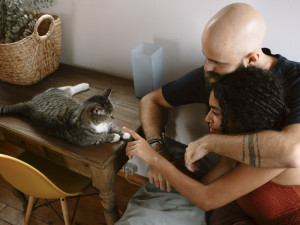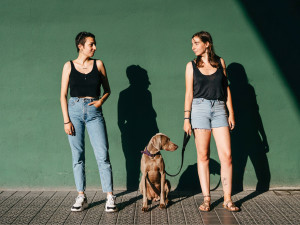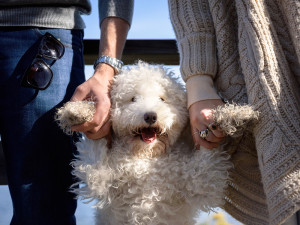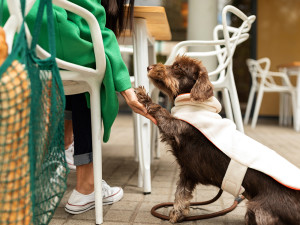Should You Put Your Pet in Your Dating Profile?
Yesterday was “Dating Sunday” on the apps. Apparently, your pet pic is a great way to find a match.
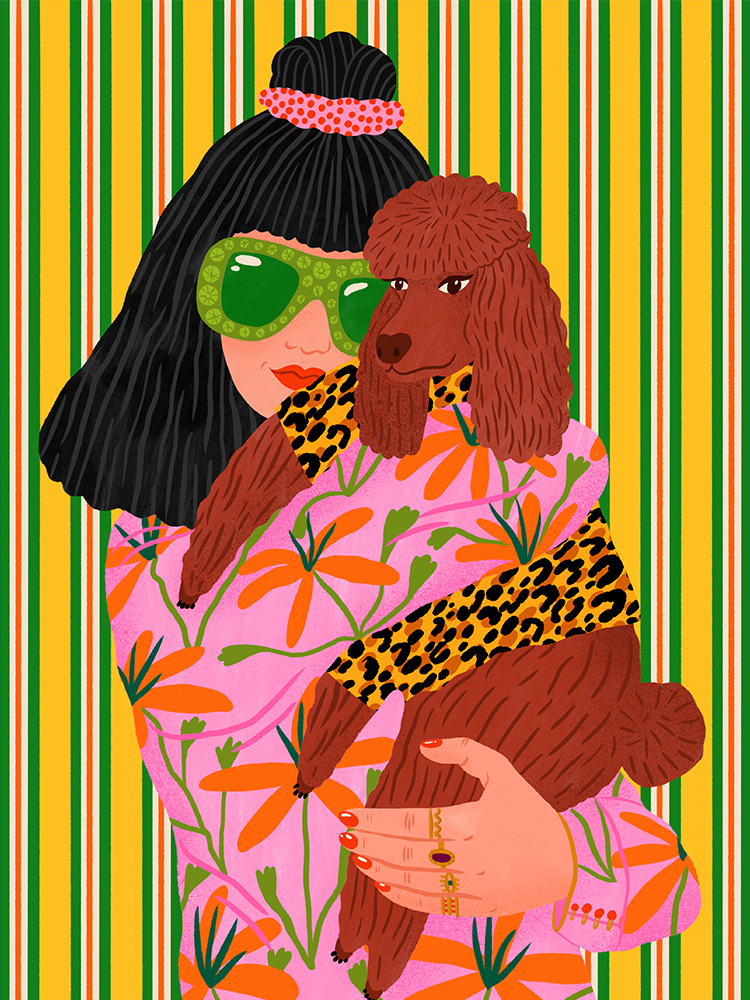
share article

Your pet wants you to read our newsletter. (Then give them a treat.)
Heavy Petting is a weekly column full of relationship advice for pet parents — so you and your boo don’t end up fighting like cats and dogs over the cat and dog.
According to Tinder’s stats, the first Sunday of January is the busiest day of the year for online datingopens in a new tab, with messages up 22 percent and likes up 18 percent. That means if you were swiping yesterday, your odds for matches are good — and if you were swiping with an adorable pet photo in your profile, those odds are really good.
At least, this was the finding of a 2023 studyopens in a new tab conducted by the British organization Guide Dogs. The survey found that two-thirds of the 1,000 participants responded that they were more likely to match with someone if they include a dog in their profile picture. Their logic was less about getting to spend time with a dog (so they say!) and more about the characteristics they see inherent to dog-guardianship. People who had dogs — the participants reported — seemed to be more active, social, responsible, and empathetic. And, the survey subjects guessed, someone who has a dog is more likely to want to settle down.
When in doubt, talk about pets.
“It’s also so easy to chat to people on the apps about their pets, when you need an opening line!” says my friend Ari, who lives in Chicagoopens in a new tab and is very happy in their dating life. “It’s a way of asking them about themselves, but it’s a step removed,” they say. “And you can see how they express affection and love. That makes me asking about their pets sound more calculated — the baseline is that I am always genuinely interested in hearing about dogs!” One of the last people Ari was chatting to, they say, was a dog walker, which was only disappointing because Ari thought from the photos they were meeting someone with at least four beautiful pups. But hey, dating a dog walker isn’t a bad way to meet a ton of dogs.
If you see a pet in a pic, that says something good.
My friend Mara dated her way into a pretty hillside house in Los Feliz occupied by not one, but two, calico cats, who were photographed in her current boyfriend’s profile. “You know, I think when I was looking at dating profiles and there wasn’t anything wrong with them overtly, but something didn’t feel right, it was, like, the absence of a pet. Maybe people look their kindest and most giving when they’re with an animal.”
Mara also remembers that her profile photo catered to a deception: a photograph of her with her parents’ cat. “Oh, I realize now I was a catfish,” Mara says, “Oh, well, I got what I wanted!” This reminds me of a roommate I had who volunteered with kittens, and after her first night instantly updated her dating profile with a photo of her surrounded by the kittens.
“Well, of course, I have to foreground Pepita,” says another former roommate, Katy, about her dog, a mix of unknown lineage who looks like a scruffy absent-minded professor. “Getting to know Pepita would be the best part of getting to know me!” But Katy finds herself extremely ambivalent about dogs in other’s photos — because it means that early dating is a difficult shuffle between the dogs’ feeding and walking schedules, and sleepovers always leave one dog lonely. But then, knowing that the person also loves dogs is a quality that outweighs the logistics.
When their pet becomes your bestie.
In the years I dated the most voraciously, I was very busy flinging myself from city to city and maintaining a deliciously unpredictable schedule. My life, as I saw it, would be ill-suited for a dog. I’d created a difficult situation for myself, because all I’ve always wanted was a dog. So, I was particularly attuned to pets in dating profiles, as I saw this as my sneaky loophole to spending time with an animal. I could date my way to it.
My most wild year — perhaps the year of my life least suited to having a dog — was the year I matched with someone who had just adopted a little brindle mix puppy, Finn. I insisted that I bike home with my date to meet the puppy and take him on his evening walk. Due to circumstances of love, Finn is now my very best friend and daily companion. And if he had been my puppy at the time of meeting my partner, I know he would have been in every single one of my pictures.
Now, a few pet-centric date ideas, after you’ve matched:
Go on a hikeopens in a new tab with your dogs.
Volunteer to walk a dogopens in a new tab together as a shelter.
Make a date at a cat cafeopens in a new tab. Leave the dogs at home.
Keep an eye out for dog meet-ups. I’ve only ever accidentally run into my local Pug meet-up day, but it was the best. There are also dog costume contests that seem particularly fun.
Niche pet activity, but a personal delight: go to a museum and find all the dogs and cats in the art.

Maggie Lange
Maggie Lange is a writer, editor, and columnist. Her work has been featured in New York Magazine, Vice, Guernica, GQ, Rolling Stone, Pitchfork, Elle, and Bon Appetit. She lives in Philadelphia with her favorite brindle boy, Finn.
Related articles
![Couple each holding the paw of their white fluffy dog]() opens in a new tab
opens in a new tabWho Keeps the Dog in a Divorce?
Legal experts weigh in on developing pet custody issues.
![A woman and a man dressed up and celebrating with their arms in the air with confetti falling around them and a dog wearing a flower crown around its neck.]() opens in a new tab
opens in a new tabHow 8 Pet Parents Creatively (and Safely) Included Their Dogs in Their Weddings
Real people share pics and tips from their big days. Get inspired!
![Bride and Groom with Dogs on Wedding Day]() opens in a new tab
opens in a new tab11 Tips For Including Your Dog In Your Wedding
Whether your pet is walking you down the aisle, playing the role of ring bearer, or entertaining guests at the reception, read this before the big day.
![Happy Wedding Couple Holding Dog]() opens in a new tab
opens in a new tabWant Your Dog to be the Witness at Your Wedding? It's Possible in These 23 States
One lucky pup gives us a first-person account of their experience in this official role.
![A wedding cake decorated with roses and cats sitting on a table next to a white platter of chocolate cupcakes with white icing and a sign saying "Something Sweet"]() opens in a new tab
opens in a new tab6 People Who Made Their Pets the Stars Of Their Wedding Cakes
Fall wedding season is winding down, so let’s talk about the best kind of wedding cakes: those with pets on top (or climbing the cake or biting into it). Really, all the cakes.
![Puppy Giving Paw To Owner At Coffee Shop.]() opens in a new tab
opens in a new tab15 Places Your Date Won’t Go With You — But Your Dog Will
In response to a certain list that went viral this week, we’ve got you covered.
